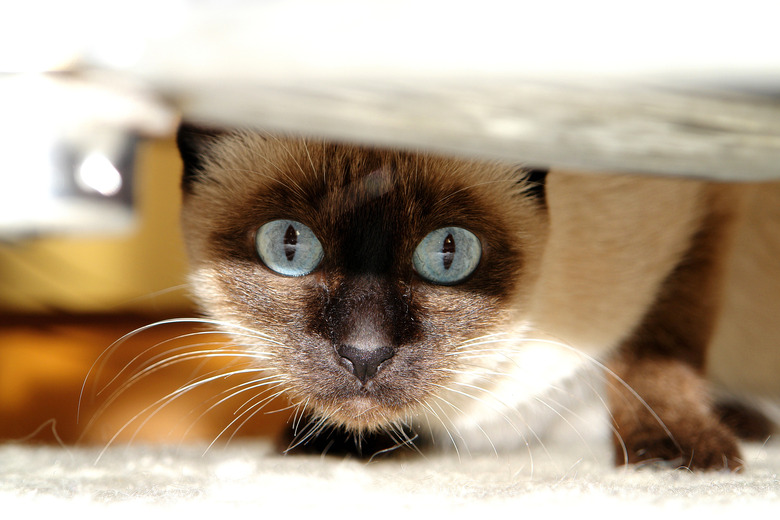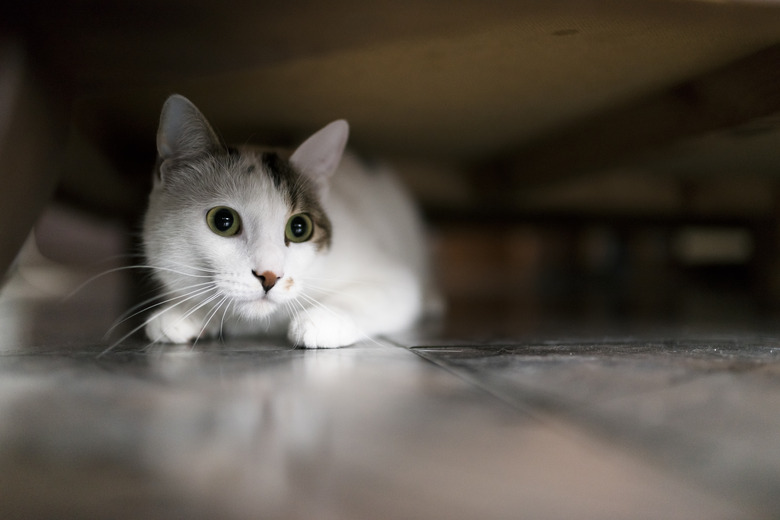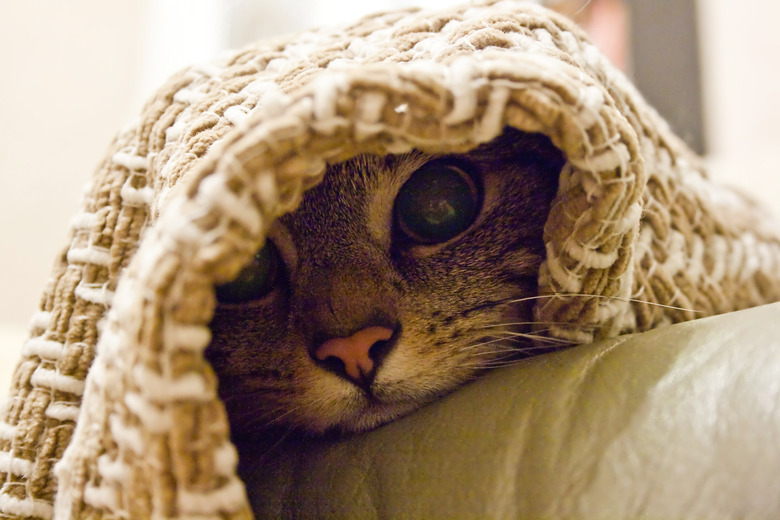Cat Hiding Under Bed: Why Does My Cat Hide Under The Bed?
If your cat is hiding under the bed, it may be a simple matter of preference, or because he's temporarily overwhelmed and needs a little break. If separating himself from the family is out of character, a cat hiding under the bed all day may be a sign of illness or injury and may require intervention.
Tip
Cats hide under beds for a variety of reasons, including fear, illness or just the need for some personal space.
It just joined the family
It just joined the family
When you first bring your new cat home, he may immediately retreat to the space under the bed, as far from your reach as he can get. For a cat, hiding under the bed (or other hidden spots) is natural; some cats hide for a few days because their new environment is unfamiliar and scary.
An adult cat with past trauma may need more time to adjust than a new kitten who is simply shy and timid. Leave food, water, and a litter box in the bedroom for the first day or two while your cat adjusts to life with his new family.
If you're bringing a new cat home, you might prepare for this type of behavior by checking under your beds to make sure the spaces are safe, or you might block them off or close the door to the room.
Your cat likes alone time
Your cat likes alone time
Every cat is an individual with his own personality traits. Some cats enjoy lots of physical contact and prefer to perch in spots where they can keep an eye on things. Others are more independent or aloof, and spend time away from the hustle and bustle of a busy household. Many cats feel secure in tight spaces, so a cozy spot under the bed works well for a little break. If your cat enjoys an occasional sabbatical under the bed, give him some space; he'll be back to hang out with the family when he's ready.
Cats sleep about 15 hours a day, so if your cat is hanging out under the bed a lot, it could just mean that's their preferred spot for their cat naps. If your're not noticing any other troubling signs that might suggest he's injured, it could be that he's just enjoying the dark, cool, cave-like space.
The cat is frightened
The cat is frightened
Cats often retreat under beds when they are afraid. A loud noise, such as a dish shattering on the floor, results in varying behaviors depending on your cat's personality. He may react with nothing more than a feline look of disdain, or if he's a fraidy cat, he may bolt in terror to hide under the bed for the remainder of the evening.
A naturally anxious cat might hide every time there's a loud noise or an unfamiliar visitor. It's fine to let your cat retreat to his under-the-bed spot, but don't punish his behavior. Instead, speak to him in a calm, quiet voice and allow him to emerge from hiding when he's ready.
Your cat is sick
Your cat is sick
It's natural instinct for cats to hide illnesses and injuries from their owners. If they're unable to act normally, they may hide in the quiet, enclosed space under the bed. Pay attention to your cat's daily habits and watch for changes in his behavior.
Signs of illness include eating or drinking less or more than normal, vomiting, coughing, diarrhea or constipation, and lethargy. An injured cat may have visible wounds or engage in other behaviors such as excessive purring or grooming. If your cat exhibits any of these signs, or you suspect he may be injured, take him immediately to the veterinarian.


